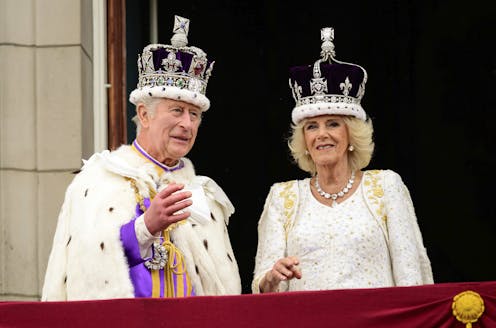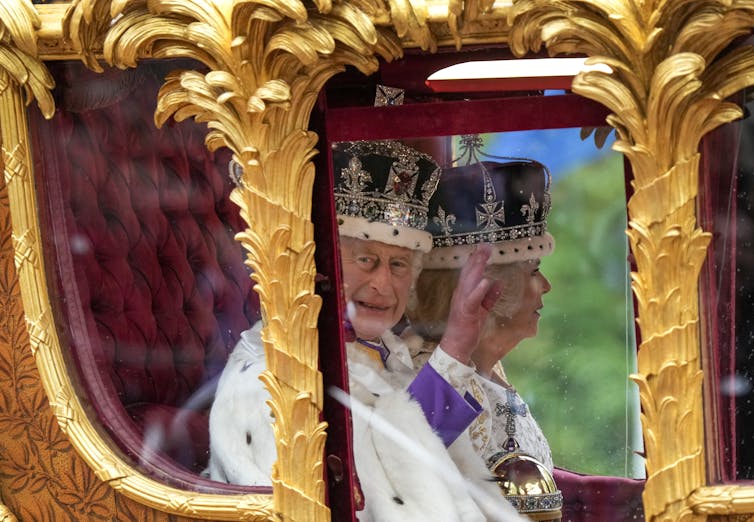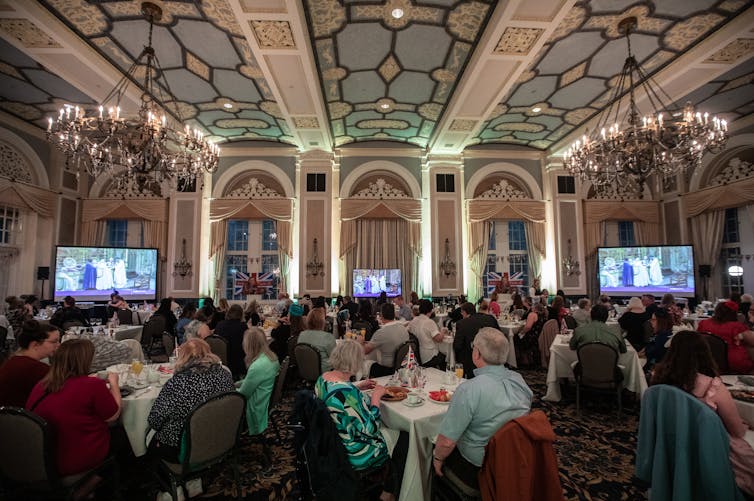
The coronation of King Charles was a cringe-inducing display of white European hereditary privilege and ostentation that angered many, both in the United Kingdom and the Commonwealth.
That anger, or in some cases simple apathy or collective eye-rolling, should not be ignored because the monarchy and the Crown are not merely symbols, they’re a massive expense.
The cost of the coronation to the British taxpayer has been estimated at £100 million (almost $170 million in Canadian dollars) — extremely costly in a post-Brexit period of economic uncertainty and decline for the U.K..
Some of the vast private wealth and land holdings of the Royal Family are also connected directly to England’s role in colonization and the slave trade.
Despite all this, the monarch remains the head of state for many Commonwealth countries, including Canada.

The U.S. style of republicanism
While the American experiment in republicanism isn’t looking especially good at the moment amid the shambles left by Donald Trump’s presidency, the country’s founders were correct in recognizing that democratic legitimacy and monarchical power cannot be easily reconciled.
In fact, their biggest mistake and that of subsequent generations may simply have been to permit the presidency to retain elements of absolute or unfettered power in the form of executive privilege.
From George W. Bush’s disastrous war on terror to the Trump administration’s outright repudiation of democratic norms, recent presidents have not hesitated to behave like kings.
In Canada, we can benefit from both the lessons of the United States and the U.K. to avoid idealizing a republic with a powerful president and at the same time acknowledging that a traditional monarchy, even a purely symbolic or constitutional monarchy, is no alternative.
As I have argued before, each Commonwealth nation would have different legislative and constitutional processes to follow to sever ties with the British monarchy. Canada’s in particular would be complex and difficult, but not necessarily impossible.
Read more: Will Canada cut ties to the monarchy under King Charles? It's possible
It would require unanimous consent of all provincial legislatures and the federal Parliament. In practice, this would probably not be possible without referendums in each province. Because of this, some leading constitutional lawyers in Canada regard the question as a non-starter.
But if Canadians aren’t careful, they may one day find that events in the U.K. make the decision for us.
Here’s how.
Different political systems
Suppose current British demographic trends and polling data pan out and a decade or two from now a younger, more diverse British population loses patience with the monarchy.
Like Canada, the U.K. has a constitution and the monarchy is essential to it. But unlike Canada, the U.K.’s constitution is largely unwritten. Changing the British Constitution can at least theoretically be done by an ordinary act of Parliament and without the complexity of co-ordinating 10 sovereign legislatures.
Another difference? The U.K. is a unitary and not a federal state. This means British parliament, unlike Canada’s, can unilaterally amend its constitution to address the status of the monarchy if it wishes.
Similarly in the U.K., any conventions around public consultation would also be arguably less complex and more straightforward than in Canada because of the British system of government. This could lead to a bizarre situation in which the British monarch ceases to be the British head of state but remains the Canadian one.
To my knowledge, this would be a completely uncharted territory and a constitutional crisis of the highest magnitude.
Rather than continuing to sit nervously on the sidelines observing America’s presidential system lurch from crisis to crisis, or celebrating the coronation of Britain’s new king as our own, Canada should learn from the errors of both the republican model and monarchical model and do something different.

Looking ahead
We might start by recognizing forms of political association, governance and policymaking that are less European and owe more to Indigenous models.
Mary Simon, Canada’s governor general and the King’s representative in Canada — as well as first Indigenous person to occupy that colonial office — is correct when she says many Indigenous people look to the treaty relationship with the Crown, which predates Confederation itself, as part of their strategy of decolonization.
But it’s tough to reconcile a European hereditary monarchy with a Canada in which Indigenous people are attempting to take control over their own destiny.
Similarly, for many Canadians who immigrated to Canada from parts of the former British Empire in the Caribbean, Africa and India, finding the old colonial monarchy waiting for them here is no sign of dynamism.
It will be up to the current generation of Canadians to decide if now is the time to begin taking this question more seriously or whether to leave it to the United Kingdom to decide for us.
Jeffrey B. Meyers does not work for, consult, own shares in or receive funding from any company or organisation that would benefit from this article, and has disclosed no relevant affiliations beyond their academic appointment.
This article was originally published on The Conversation. Read the original article.







